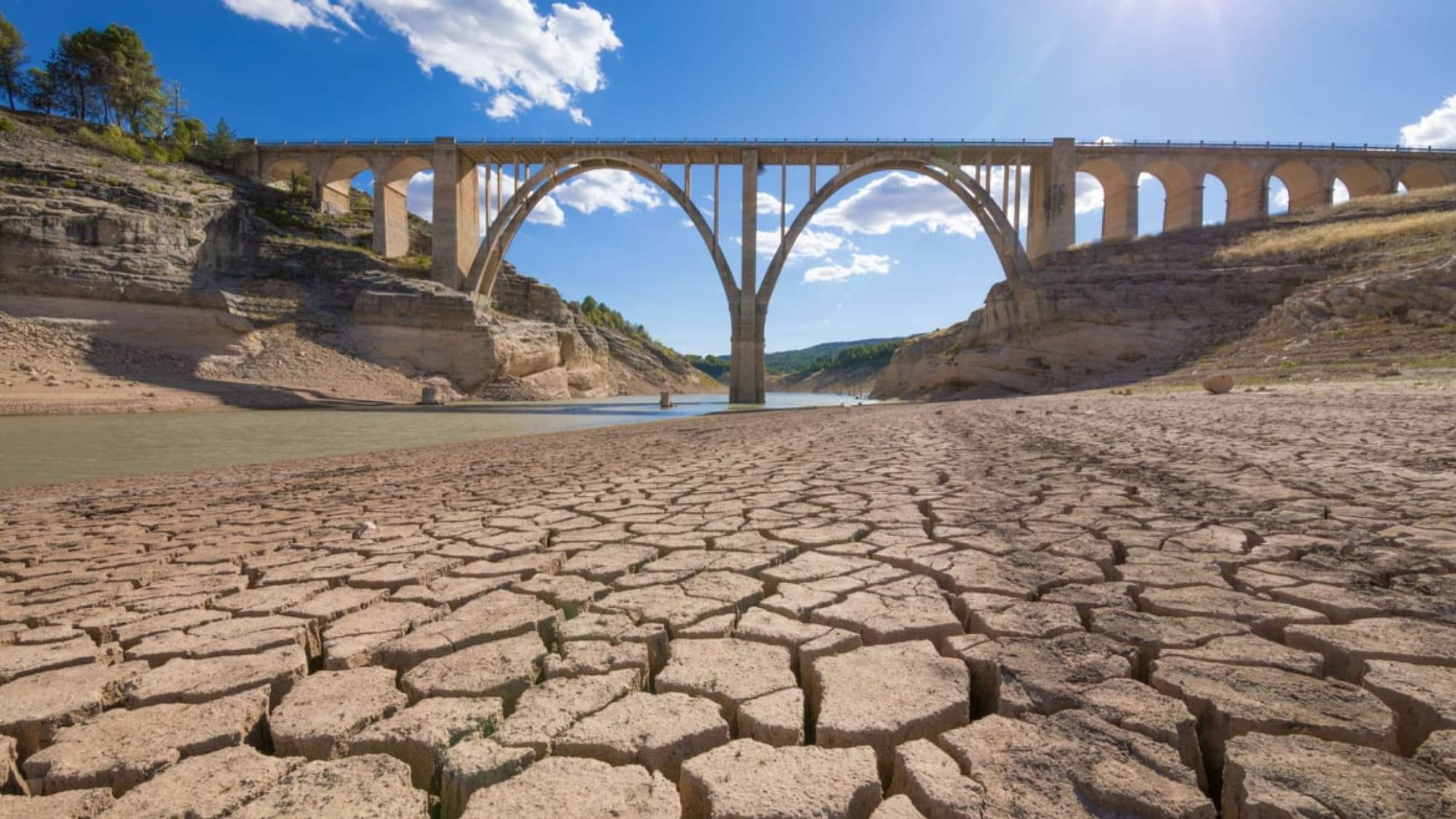Climate Disasters and Divine Providence

27 July 2023
By Dr. Adi Schlebusch
Europe is facing a second year of severe drought with wildfires now devastating large parts of the continent. These environmental disasters are causing billions in losses in the tourism and agriculture industries. Secular scientists are of course attributing this to man-made climate change and calling for even more green energy policies. This of course leads to even more economic hardship as the most cost-effective ways of generating energy are discarded in favour of more expensive and ineffective options.
While the science behind the theory of man-made climate change is very weak, I want to propose an argument today that, in light of the doctrine of providence, there is indeed an important element of human responsibility when it comes to climate disasters.
One of the biblical narratives that really stuck with me since childhood was that of the prophet Elijah who, during the days of king Ahab, prayed that no rain would fall in Samaria because of the sins of that nation (I Kings 17-18). The Lord providentially decreed a three-year drought, which only ended when the people repented. In the most famous biblical passage addressing the issue of national repentance, II Chronicles 7:13-14 we also read that God uses, among other things, climate disasters to judge a people:
When I shut up heaven and there is no rain, or command the locusts to devour the land, or send pesitilence among My people, if my people who are called by My name will humble themselves, and pray and seek My face, and turn from their wicked ways, then I will hear from heaven, and I will forgive their sin and heal their land.
In this passage we see that God providentially employs the climate to accomplish His ends in terms of bestowing covenantal blessings and judments upon nations. For this reason the Heidelberg Catechism, in treating the doctrine of providence, notes in Lord’s Day 10 that:
God’s providence is His almighty and ever-present power whereby, as with His hand, He still upholds heaven and earth and all creatures and so governs them that leaf and blade, rain and drought, fruitful and barren years, food and drink, health and sickness, riches and poverty, indeed all things, come to us not by chance, but by his fatherly hand.
In other words, God not only controls the climate but directs it towards achieving His providential ends. Europe currently experiencing droughts, wildfires, a loss of crops and devastating heat waves can indeed in part be attributed to the European people themselves—not to their use of fossil fuels, however, but to their apostasy.
This understanding of even climate change as the manifestation of the providence of an omnipotent God who blesses and judges in accordance with his covenants with mankind entails recovering something of a traditionalist worldview in contradistinction to the rationalism, empiricism and emotionalism which had characterized modernism and postmodernism. It entails understanding all of creation itself as the manifestation of the will and decrees of a sovereign God who controls and directs all things towards His distinct ends.
Of course, this doesn’t always entail a 1-1 correlation between a sin and the earthly punishment thereof. Yet even this in no way negates the fact that earthly suffering must often indeed be seen as a punishment for sin. As John Calvin (1509-1564) pointed out:
Although God often permits the guilty to exult for a time of impunity, and the innocent to be driven to and fro in adversity, nay, even to be wickedly and iniquitously oppressed, this ought not to produce any uncertainty as to the uniform justice of all His procedure. Nay, an opposite inference should be drawn. When any one crime calls forth visible manifestations of his anger, it must be because he hates all crimes; and, on the other hand, his leaving many crimes unpunished, only proves that there is a judgment in reserve, when the punishment now delayed shall be eternally inflicted.1
In other words, not all sins are punished in this life, and not suffering in this life can be directly attributed to specific sins. Yet, this shouldn’t lead us to draw the conclusion that suffering isn’t sometimes a punishment for sin. In some cases it may be more evident than others, as, for example, STDs are a very clear divine punishment for sexual immorality. But there can be no doubt that God also uses nature for His covenantal ends. Furthermore, all suffering always necessarily stand in some relation to sin, given the fact that if there had been no sin, there would also not have been any suffering. In this sense, all suffering is indeed the consequence of sin, even if only indirectly.
When we therefore witness the natural disasters currently befalling Europe, we cannot but see it as coming from the hand of the Pantokrator, the all-governing and omnipotent God who sovereignly directs all things towards His ends. If the European people therefore fail to repent, judgement upon judgement will eventually lead to their destruction.
1 Institutio Christianae Religionis I.5.7.
Non enim dubiae sunt quas de flagitis sumit ultiones: quemadmodum non obscure tutorem ac etiam vindicem se innocentiae esse demonstrat, dum bonorum vitam sua benedictione prosperat, necessitati opitulatur, dolotes lenit acc solatur, calamitates sublevat, saluti per omnia consulit. Neque vero per petuam iustitiae eius regulam obscurare debet, quod improbos et fontes ad tempus impunitos saepiuscule exultare sinit, probos aute et immeretes multis rebus aversis iactiari, im prioru etia malitia et iniquitate premi sustinet. Quin potius longe diversa cogittio subi re mentem debet; quando in flagitiu unum manifesto irae indico animadvertit, omnia ipsum odisse; quando multa inulta praetermittit, aliud forte iudicium quo punienda disse runtur.